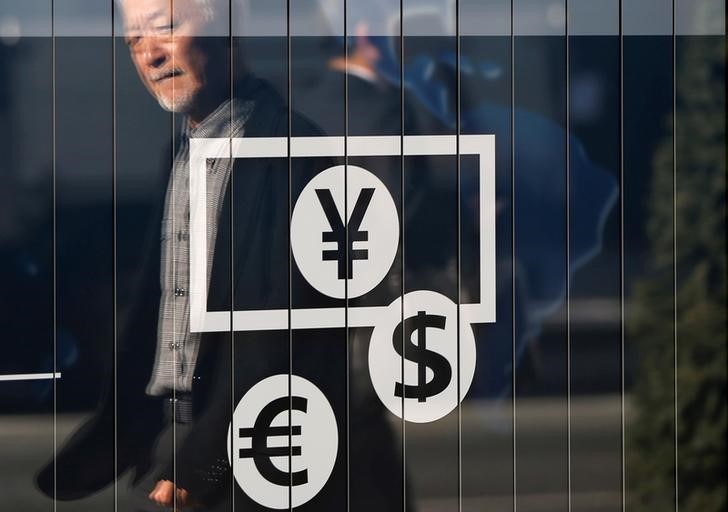By Peter Nurse
Investing.com - The dollar edged higher in early European trade Friday, heading for its best week of the month as rising coronavirus cases prompt nervous traders to seek out this safe haven.
At 2:55 AM ET (0655 GMT), the Dollar Index, which tracks the greenback against a basket of six other currencies, was up just 0.01% at 93.873, posting gains of around 0.8% this week, its best weekly performance since late September.
Elsewhere, EUR/USD was down 0.1% at 1.1697, down over 1% this week, while USD/JPY was down 0.1% at 105.33. The risk-sensitive AUD/USD was hit hardest, dropping 0.2% to 0.7076, off over 2% this week to a more than two week low.
The prime driver of this move back into the dollar as a safe haven has been the spike in Covid-19 cases on both sides of the Atlantic, triggering fears of fresh lockdowns and worries over the detrimental impact on economic recovery.
In Europe, London is set to enter a tighter lockdown from midnight, while Paris, and a number of other major French cities, is set to suffer a curfew for the next four weeks. The news isn’t much better in the U.S., with Midwestern states battling a surge of new cases as temperatures drop.
Throw in U.S. initial jobless claims moving in the wrong direction once again and little chance of new fiscal stimulus ahead of November’s elections, and it’s easy to see why traders may choose to shun riskier currencies at this time.
“With the probability of a pre-election U.S. fiscal stimulus declining further overnight and the ongoing deterioration of the Covid situation in Europe (accompanied by further restrictions, the latest being the night-time curfew in selected French cities, including Paris), the dollar should retain support,” said analysts at ING, in a research note.
Elsewhere, GBP/USD dropped 0.2% to 1.2893, 1.2% lower this week after suffering heavy selling overnight following the European Union's demand that Britain offer more concessions to secure a trade deal or brace for a disorderly end to the post-Brexit transition period in three months.
U.K. Prime Minister Boris Johnson is set to respond Friday, but given it was his hardline stance on the negotiations which propelled him to power, backing down will be complicated.
The United Kingdom formally left the EU on Jan. 31, but the two sides are haggling over a deal that would govern around $900 billion in annual trade when informal membership - known as the transition period - ends on Dec. 31.
